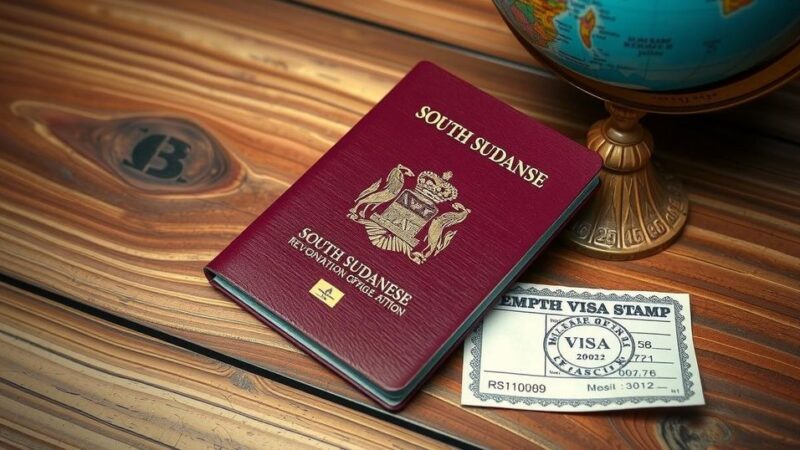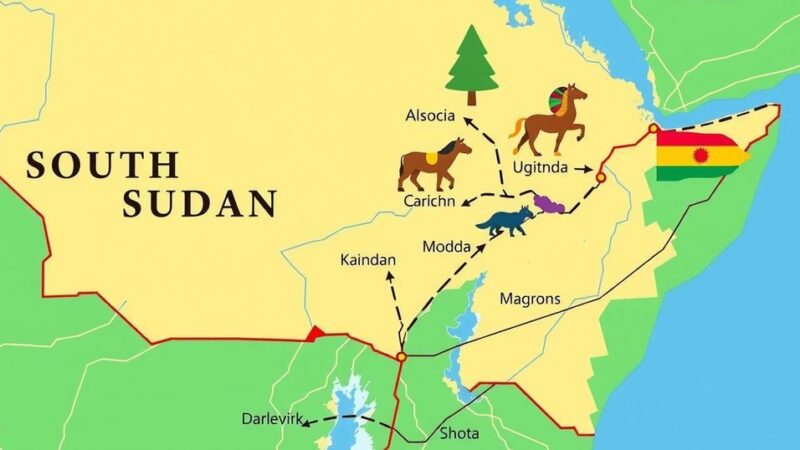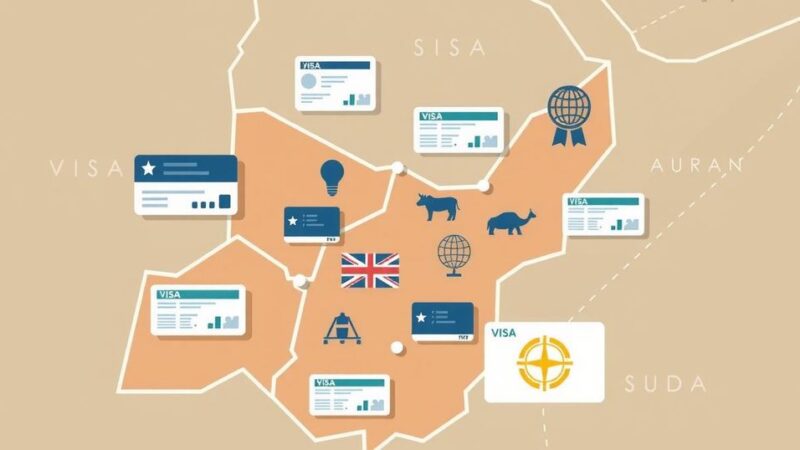South Sudan must navigate complex relations with Uganda, which are shaped by historical ties, military involvement, and economic interdependencies. Ongoing conflicts, regional geopolitics, and Uganda’s support for specific factions complicate matters further, necessitating a balanced foreign policy that safeguards South Sudan’s sovereignty while fostering international partnerships.
The Republic of South Sudan, the world’s youngest nation, is currently facing pivotal challenges in its bilateral relations with Uganda. These interactions are complex due to shared cultural histories and diverging political interests, which profoundly impact regional stability and economic growth in both nations.
Historically, Uganda has played a significant role during South Sudan’s struggle for independence, providing military and logistical support to the Sudan People’s Liberation Army (SPLA). This partnership has sometimes been portrayed as part of the broader effort against the Lord’s Resistance Army (LRA), which opposed the Ugandan government.
Following independence in 2011, the relationship between South Sudan and Uganda has been characterized by both collaborative efforts and competitive tensions. South Sudan has became an essential market for Ugandan goods, and Uganda has facilitated crucial trade routes for South Sudan, enhancing economic interdependence.
Nonetheless, challenges persist, particularly due to Uganda’s military involvement during conflicts, notably the civil war that began in December 2013. The deployment of the Ugandan People’s Defense Force (UPDF) to assist President Salva Kiir’s regime heightened political strain and led to substantial humanitarian crises, resulting in significant loss of life and displacement of communities across war-affected areas.
Although a peace agreement was reached in 2018, the fragmented state of South Sudan still reflects its precarious internal governance and ongoing humanitarian challenges. Consequently, the bilateral relations with Uganda are influenced by geopolitical factors, as evidenced by both nations’ interactions with other regional conflicts, attracting international concern.
Uganda’s backing of President Kiir has led to accusations among opposition factions that the Ugandan government exacerbates existing divisions in South Sudan and implicates the country in a complex regional power struggle involving external nations like Sudan and Ethiopia.
Economic competition, especially in sectors such as oil, adds another layer to these interactions. The two nations share critical trade routes and energy supply lines, which, while beneficial, can also incite tensions as they both strive to maximize resource control and export capabilities. Uganda’s interest in South Sudan’s oil reserves continues to attract scrutiny amid regional instability.
Geopolitically, South Sudan’s position in the Horn of Africa makes it significant to multiple global actors, each vying for influence. Consequently, Uganda’s involvement in South Sudan is shaped not just by bilateral concerns but also by broader regional dynamics, complicating relations with neighboring states.
On the international stage, organizations like the United Nations and the African Union exert influence on Uganda’s policy approaches. The global community continues to advocate for a more neutral stance from Uganda that promotes internal dialogue within South Sudan.
To effectively mitigate the influence of Uganda and protect its sovereignty, South Sudan must adopt a strategic and inclusive diplomatic framework. This approach should promote engagement with multiple nations while ensuring the integrity of governance and regional cooperation. Reducing dependence on a singular partner is crucial to maintaining stability and addressing the internal political challenges faced by South Sudan.
In conclusion, South Sudan’s relationship with Uganda exemplifies the intricate dynamics of bilateral ties impacted by history, politics, and economics. To secure its sovereignty and foster stability, South Sudan must pursue a balanced foreign policy that mitigates reliance on Uganda while promoting inclusive governance and strengthening partnerships with other regional powers. The path forward hinges on effective diplomatic strategies that address both external influences and internal governance challenges.
Original Source: www.radiotamazuj.org






